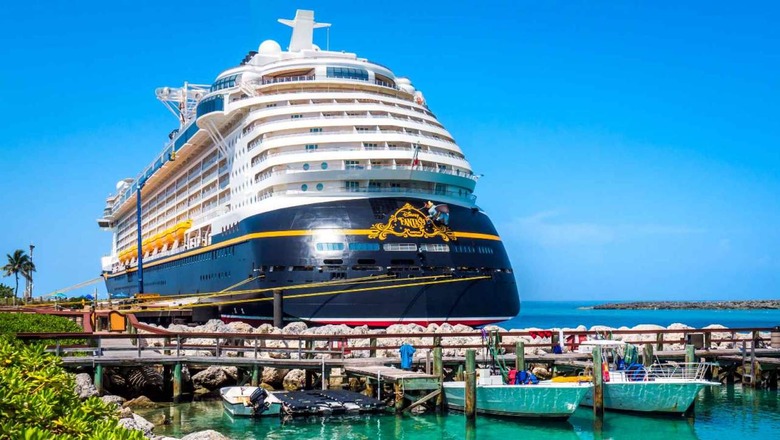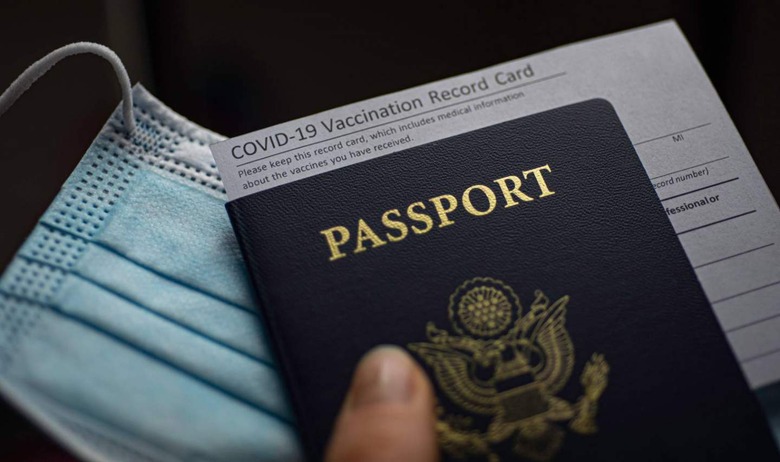Why The CDC Says Everyone Should Avoid Cruise Ships Right Now
With Omicron cases spreading rapidly throughout the world, the US Centers for Disease Control and Prevention (CDC) has published a new bulletin advising that travelers avoid cruise ships entirely — even when fully vaccinated. The decision comes in part based on the spike in COVID-19 cases observed among cruise ship passengers and crew members.
Current data shows the number of daily COVID-19 cases in the US started spiking astronomically around the beginning of December 2020, a new wave largely fueled by the latest variant of concern, Omicron (via CDC). This new wave — combined with many unanswered questions about the variant — has led to renewed restrictions intended to curb transmission and help prevent the healthcare system from becoming (even more) overloaded.
In light of Omicron's high transmissibility and the record number of cases it has produced, the CDC advises that travelers entirely avoid taking trips on cruise ships even if they've received the primary dose of COVID-19 vaccines and the booster shot (via Reuters). The CDC maintains a website that shows the status of various cruise ships operating in the US using a color-coded chart.
The yellow status indicates that a substantial enough number of COVID-19 infections have been identified among passengers and/or crew to warrant an investigation from the CDC — and, as of the most recent update, almost all of the cruise lines are now listed as yellow. In most cases, the CDC says it has either started an investigation or already performed one with plans to continue monitoring the vessel.

Cruise ships currently listed by the CDC as "yellow" include the Breeze, Conquest, Dream, Elation, Freedom, and a number of other vessels from Carnival Cruise Lines, as well as multiple Holland America vessels, and Disney's Dream, Fantasy, Magic, and Wonder ships — as well as many others from different cruise companies.
Cruise industry reacts
It's easy to see why cruise ships can be problematic when attempting to avoid a disease largely spread by being in close proximity to an infected person. These vessels often have cramped quarters and people tend to congregate in shared spaces, including bars, pools, and decks. The limited space on a cruise ship means it can be difficult to leave your room but still maintain a distance from other people.
Despite these concerns and the increasing number of COVID-19 cases on cruise ships, the industry hasn't responded favorably to the CDC's latest guidance. Cruise Lines International Association (CLIA) has already published a statement on the matter, calling the guidance "particularly perplexing" in light of the fact that "the cases identified on cruise ships consistently make up a very slim minority of the total population onboard."
CLIA goes on to claim the number of cases on ships are "far fewer than on land," also stating that most cases are mild or asymptomatic and suggesting that cruise ships could potentially be safer — from an infection risk standpoint — than spending one's vacation on land.
"Cruise ships offer a highly controlled environment with science-backed measures, known testing and vaccination levels far above other venues or modes of transportation and travel, and significantly lower incidence rates than land." Despite these criticisms, CLIA notes that both it and its partners in the industry will collaborate with the CDC on these health matters.

